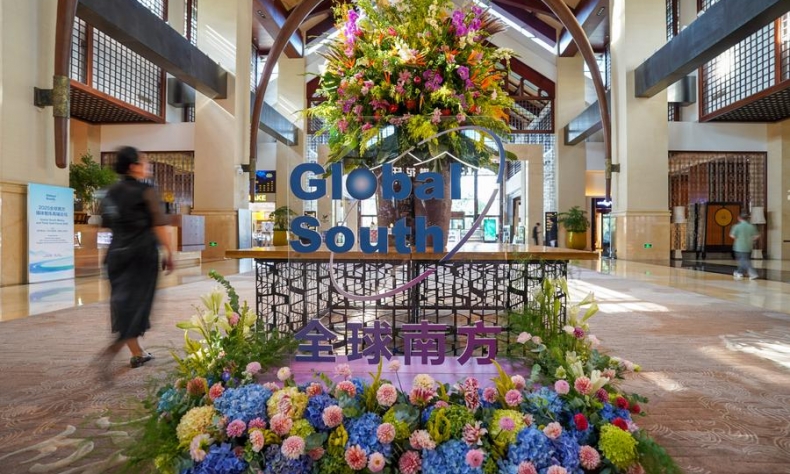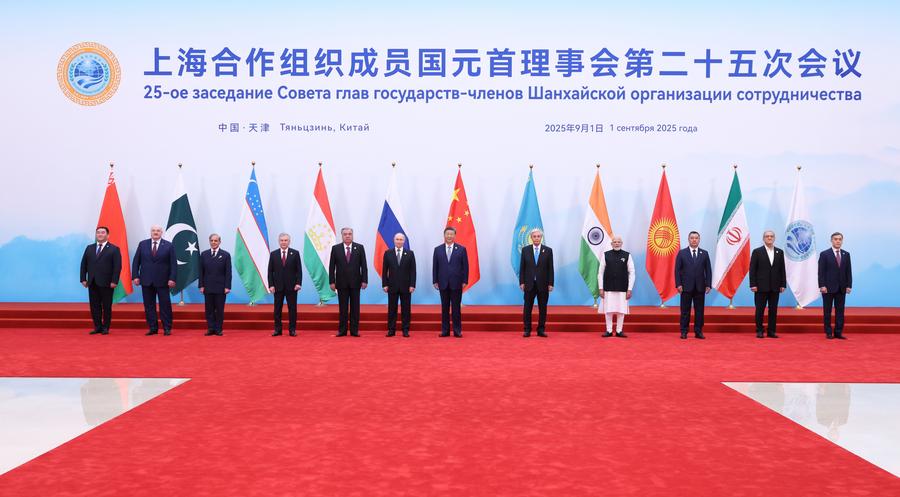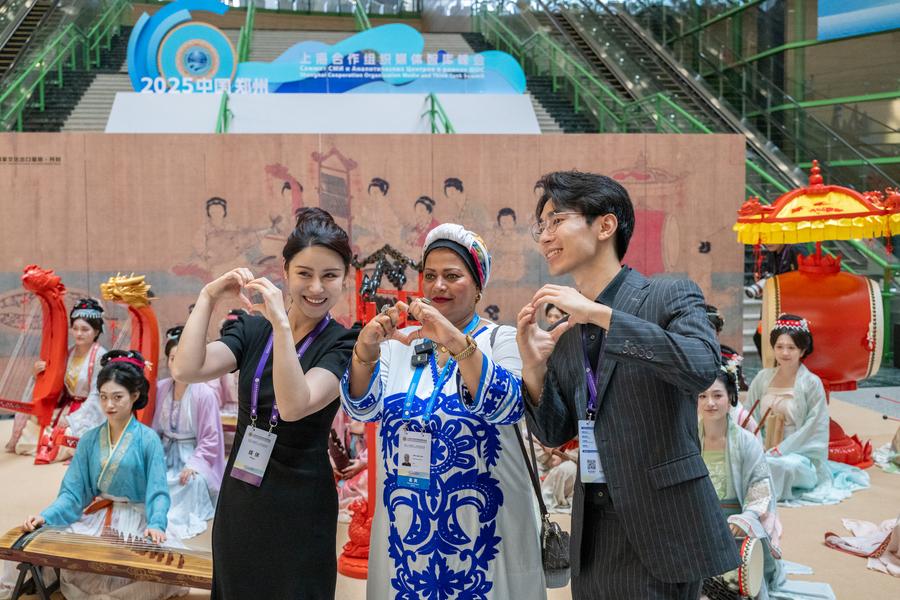New Mood, New Momentum

The Global South is finding its voice, and China is providing the framework for that voice.
Events in the first few days of September have confirmed what was already in motion. A new rhythm in world affairs is emerging. In Tianjin, a metropolis in north China, Chinese President Xi Jinping launched the Global Governance Initiative (GGI) at the Shanghai Cooperation Organisation (SCO) Summit. In Beijing, China’s capital, President Xi reviewed troops during a military parade to mark the 80th Anniversary of the Victory in the Chinese People’s War of Resistance Against Japanese Aggression and the World Anti-Fascist War.
These developments are not isolated. They embody a new mood and create a new momentum. The Global South is stepping forward, not as a spectator, but as an active participant in shaping a more just order.
Philosophy teaches that contradictions are not flaws in reality, but its driving force. Early September illustrates this clearly. Remembrance of the anti-Fascist struggle reminds us that peace requires constant vigilance. The SCO Summit, Beijing commemorations, and renewed calls for alternatives to Western diktats together mark a turning point. The mood is affirmative, and the momentum is deliberate. It stems from the recognition that while hegemonism persists, so too does the aspiration for dignity and equality.
Architecture of pluriversality
Xi’s GGI is the fourth in a series of visions, following the Global Development Initiative, Global Security Initiative, and Global Civilisation Initiative. Together, they form an architecture of pluriversality. They represent China’s offer to the world: a path out of unilateralism, a rejection of double standards, and a commitment to sovereign equality. The SCO has grown into a bloc of 27 countries, representing nearly half of the world’s population. At Tianjin, Xi’s initiative was welcomed as a practical step, not merely as an expression of Chinese ambition. For the developing world, principles such as sovereign equality and genuine multilateralism are not abstract ideals – they are essential conditions for survival.
The GGI’s five principles of equality, the rule of law, multilateralism, people-centred development, and practical action address the shortcomings of the current global order. The GGI emphasises solidarity and fairness. From the perspective of the Global South, it is an invitation to pluriversality – a world with many centres. The SCO is becoming a laboratory for this pluralism, favouring integration over decoupling and openness over isolation. The new mood is confidence, and the new momentum is solidarity.

The GGI also reinforces China’s long-standing diplomatic tradition. Its five principles echo Chinese late Premier Zhou Enlai’s Five Principles of Peaceful Co-existence from the 1950s: mutual respect for each other’s sovereignty and territorial integrity, mutual non-aggression, non-interference in each other’s internal affairs, equality and mutual benefit, and peaceful co-existence. That these principles remain relevant today shows that the post-war consensus is still unfinished. Tariffs, sanctions, and coercive diplomacy remind us of how fragile that consensus was. The Global North spoke of peace while entrenching hierarchy.
The US’ recent use of indiscriminate hyper-tariffs illustrates this clearly. Economic tools are being weaponised against rivals, affecting not only competitors, but also partners. India is penalised for making strategic economic choices. Brazil faces consequences for following proper legal procedures. South Africa is targeted with tariffs and threatened with sanctions for implementing laws addressing historical injustices. Even the small nation of Lesotho is not spared.
This is bullying disguised as national security – a form of hegemonic statecraft that destabilises global trade and undermines development. For the Global South, it is the familiar practice of “kicking away the ladder,” denying others the very tools once used by the Global North to achieve prosperity. The Global South now insists on dignity, equality, and development.
China’s efforts to normalise ties with Japan are not about rewriting history, but about managing it. September shows that rapprochement can coexist with remembrance. The 80th Anniversary of the Victory in the Chinese People’s War of Resistance Against Japanese Aggression and the World Anti-Fascist War was commemorated with solemnity, reminding the world of the costs of domination. The dialectic is clear: reconciliation with neighbours was paired with historical memory. The new mood is remembering without bitterness, and the new momentum is reconciling without forgetting.
China hosted a military parade on 3 September to mark the anniversary. Xi spoke and showcased China’s most advanced military innovations. This is not mere display; it is a reminder that peace must be defended and sovereignty protected. For the Global South, this projection is reassurance rather than a threat. China’s technological strength signals that another force of stability exists. The Global South’s hope is not confrontation, but a stronger Chinese role in upholding peace.
Here lies the contrast. The Western underwriters of the post-war order built stability on hierarchy, exclusion and intervention. The emerging underwriter is different. China is not vengeful; it is focused on development. This matters. The old order sustained itself through dominance and exclusion. The new order, emerging in the Global South, insists that peace must be productive. It must deliver health, education, green transitions, and inclusive economies. The new mood is constructive, and the new momentum is developmental.

Defending multipolarity
No event in Tianjin or Beijing can be separated from China’s broader foreign relations. In Africa, Chinese medical teams have treated millions since the 1960s. Hundreds of Chinese firms are investing across the continent, while thousands of African students benefit from scholarships in China. Hundreds of African products enter China duty-free, and trade with Southern African countries continues to consolidate.
This is not about replacing one hegemon with another. It is about a multipolar order in which no single power dictates the terms. The Global South values relationships with the Global North, but only on the basis of mutual respect. What it rejects is hierarchy and superiority. Multipolarity is not antagonism, and counter-hegemony is not revenge. The new mood is affirmation, and the new momentum is bridge-building.
Western critics dismiss the SCO as merely performative. Yet the Tianjin summit produced concrete results: a development bank, security centres, and platforms for green and digital cooperation. These are material interventions, not theatre. Peace today is not simply the absence of conflict; it is the active creation of conditions in which sovereignty is respected and development is inclusive. Chinese actions such as visa waivers with Russia, Belt and Road expansion, and new energy platforms embody this responsibility. The new mood is responsibility without arrogance, and the new momentum is order without domination.
Multipolarity is often portrayed as chaos in Western capitals. In reality, it is a necessary condition for order in a diverse world. Unipolarity has produced endless wars and persistent inequality, while multipolarity offers balance. September 2025 will be remembered as the moment when this vision crystallised. The SCO Summit, the commemorations, and gestures of reconciliation together marked a new momentum. The Global South is finding its voice, and China is providing the framework for that voice.
The new mood in the Global South is clear. It recognises contradictions but views them as manageable. It rejects hierarchy while embracing dialogue. It no longer accepts being a mere spectator. What is needed now is a Global South consensus – not vassalage, not revenge, but a developmental consensus that prioritises dignity, equality, and cooperation. This consensus stands as a counter to the hegemonic statecraft of the Global North. Where the Global North relies on tariffs, sanctions and interventions, the Global South offers partnership, infrastructure, education, and green transformation. Where the Global North builds hierarchies, the Global South seeks reciprocity. Where the Global North treats peace as order enforced by force, the Global South insists that peace must be rooted in justice and development.
The new mood is unmistakable. The new momentum is irreversible. The Global South consensus is the framework for our shared future.
The author is Director of Centre for Public Policy and African Studies, University of Johannesburg.
 Facebook
Facebook
 Twitter
Twitter
 Linkedin
Linkedin
 Google +
Google +










